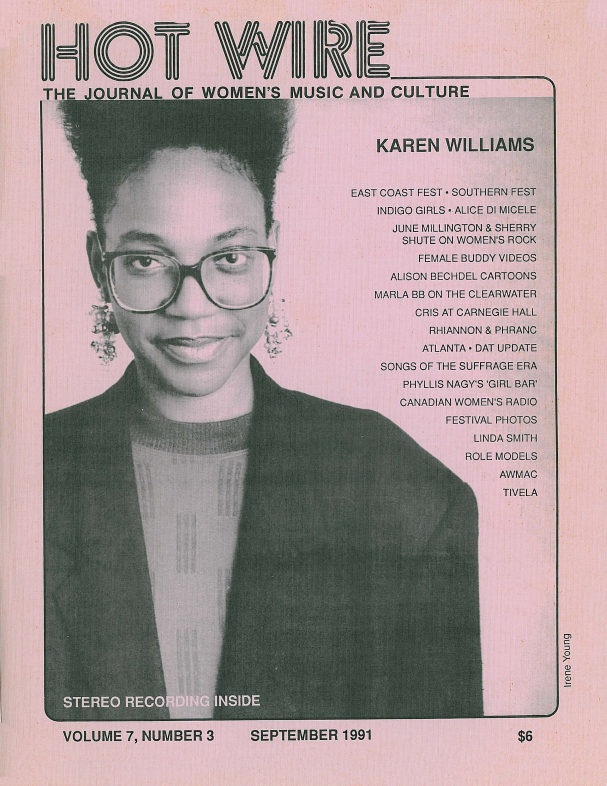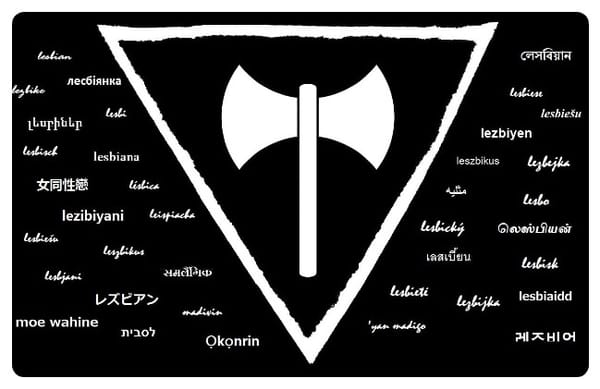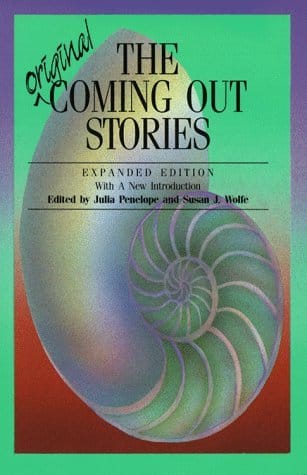For a list of Sapphic Circle meeting dates this fall, please click here.
We meet on specified Sundays at 12-1:30pm PT/3-4:30pm ET/7-8:30pm UTC.
Sapphic Circle is a space for lesbians to come together for thoughtful discussions on a variety of topics. We seek to build lesbian community through engaging in lesbian ideas, politics, media, and more!
Herstory
Lesbian comedy can be dated back to a handful of individuals before the 1970s, but it wasn't until radio and recorded media that it really took on a life of it's own. In the 1970s, musicians like Meg Christian, Sue Fink and Alix Dobkin were releasing humourous music. In the 1980s, comedy albums by lesbians started coming out such as "Always a Bridesmaid, Never a Groom" by Robin Tyler (1980) and "Making Light" by Kate Clinton (1982).
"When people ask me, "Who are your role models?" they expect me to say someone like Lucille Ball. I always, "Mary Daly. She's an incredible stand-up comedian. Have you caught her act?"... Her method of dissecting popular language and popular culture is very important. It is a lot of what I do now in my routines. Daly also showed me that the really big joke on women--that women are oppressed. As a funny woman, I had always been afraid of humor. As women we are always afraid of humor because it's been used so well and long against us. We know whose butts have been the butts of jokes. Reading Gyn/Ecology helped me put it all into perspective." (Kate Clinton, 1984).
By the 1990s, lesbians were not only on the stand up comedy circuit, but also on network television and in movies alongside A list celebrities. The TV show Ellen (1994-1998) staring Ellen Degeneres was the first of it's kind, featuring a main character who came out both on and off screen. This decade produced several comedic lesbian movies such as Go Fish (1994), The Incredibly True Adventures of Two Girls in Love (1995) and But I'm a Cheerleader (1999).
"If I were to give my primary motivation for doing comedy -along with all the other performances desires- it's for some kind of inner, I guess you could say, transformation, evolution." (Karen Williams, 1991)
Regardless of setting or format, what all these women were doing, was the same; taking up space as lesbians. And lesbians everywhere appreciated it. It went beyond laughing at the lesbian caricature or the struggle to find a girlfriend. The sets these women did covered everything from feminist consciousness to fighting with your mother about social norms. The skits lesbian comedians created talk about the impossibility of being a "good mom" and the comic strips they drew depicted lesbian ennui and friendship.
"If I offended anybody at all, you needed it." (Robin Tyler, 1979)
The Lineup
Lily Tomlin - American (1939-present)
Robin Tyler - Canadian-American (1942-present)
Kate Clinton - American (1947-present)
Karen Williams - American (1952-present)
Elvira Kurt - Canadian (1961-present)
Wanda Sykes - American (1964-present)
Sue Perkins - British (1969-present)
Tig Notaro - American (1971-present)
Martha Chaves - Nicaraguan-Canadian (1973-present)
Gina Yashere - British (1974-present)
Susan Calman - Scottish (1974-present)
Carolyn Taylor - Canadian (1977-present)
Mimi Gonzales - American (1986-present)
Kate McKinnon - British (1984-present)
Sabrina Jalees - Canadian (1985-present)
Comic Strips
Hothead Paisan by Diane DiMassa (1993-1999)

Dykes to Watch Out For by Alison Bechdel (1983-2008)

Questions To Consider
- What makes something comedic to you?
- What makes lesbian comedy crack you up, or fall flat?
- What do you think the function of lesbian comedy is?
- Where is the line for you, between criticizing cultural norms and being offensive?
- Who is your favourite lesbian comedian?
- Do you have a story about the first time going to a lesbian comedy show?
- What's the difference between feminist comedy and lesbian comedy?
- Do you have any favourite feminist comedians?
References
Zipter, Y. (1984, November). Making conversation with Kate Clinton. HOT WIRE Magazine, 1(1), 10-14.
FAQs & Code of Participation
If you have questions, please read over Sapphic Circle's Frequently Asked Questions and review our Feminist Code Of Participation.





